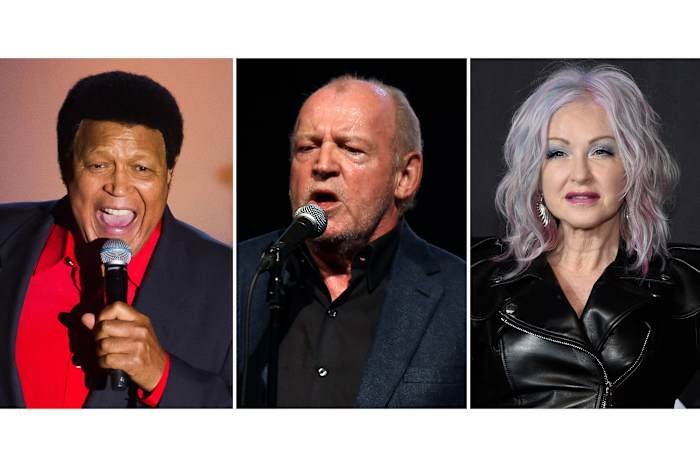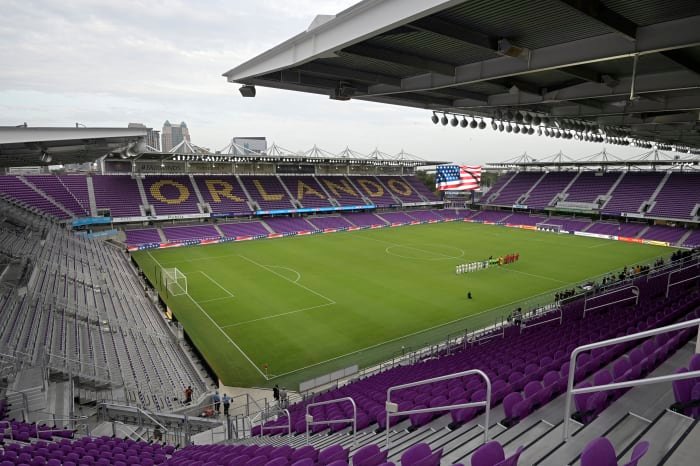Orlando, FL – As the world turns its eyes towards the United States for the highly anticipated 2026 FIFA World Cup, recent calls by Sen. Ron Wyden of Oregon to review travel policies are making waves. With Orlando set to play a pivotal role as one of the host cities, the impact of these policies is more crucial than ever for local tourism, businesses, and the overall economy. In this blog, we’ll break down why Sen. Wyden’s concerns matter for Orlando and what changes could mean for our city and its residents.
The Call for Policy Reconsideration
Earlier this week, Senator Ron Wyden sent an official request to top Trump administration officials, urging them to reconsider current travel policies affecting international visitors arriving in the United States. Wyden, who represents Oregon, highlighted the importance of smooth and welcoming entry procedures as the U.S. prepares to host global sporting events like the 2026 World Cup.
Orlando, known for its world-class attractions and thriving tourism industry, is directly affected by any federal policy that impacts international travel. With the city expecting an influx of soccer fans, teams, and media from around the globe, streamlined entry at airports and border checkpoints will be essential for a successful tournament experience.
How Travel Policies Impact Orlando’s Economy
The travel and tourism industry is the lifeblood of Orlando’s economy. In 2023 alone, more than 74 million visitors flocked to the city, many of them arriving from overseas. Policies that create delays or additional barriers for international visitors risk discouraging travel, leading to potential revenue loss for hotels, restaurants, and local attractions.
The World Cup is projected to bring hundreds of thousands of additional visitors to Orlando. The city has invested heavily in infrastructure improvements and marketing to ensure a world-class experience for all guests. However, restrictive travel policies could undermine these efforts, making it harder for fans and participants to arrive smoothly and on time.
For small businesses, rideshare drivers, and hospitality workers, the stakes are high. Every visitor who faces a travel hurdle represents lost income and missed opportunities for Orlando residents and entrepreneurs.
Security Concerns vs. Visitor Experience
Senator Wyden’s letter acknowledged the need for robust security at all U.S. entry points. However, he also emphasized that security should not come at the expense of hospitality and efficiency. Recent policy changes have led to longer wait times and increased scrutiny at airports, impacting everyone from business travelers to families on vacation.
In Orlando, where Orlando International Airport (MCO) serves as a major gateway for international flights, these issues are especially noticeable. Delays and confusion at customs could not only frustrate visitors but also tarnish the city’s reputation as a welcoming destination. As the 2026 World Cup approaches, balancing safety with a positive traveler experience is more important than ever.
The Road to the 2026 World Cup: What’s at Stake for Orlando?
Hosting World Cup matches is a once-in-a-generation opportunity for Orlando. City leaders are already coordinating with federal agencies and international partners to prepare for the massive event. But as Sen. Wyden points out, federal travel policies could make or break the city’s World Cup success.
Any changes that ease the arrival process for international fans, players, and media will help ensure Orlando shines on the world stage. Conversely, overly restrictive policies could mean missed economic opportunities and negative press coverage. Local officials are watching developments in Washington closely and may advocate for Orlando-specific solutions if needed.
How Orlando Residents and Businesses Can Prepare
While policy decisions ultimately rest with federal officials, there are steps Orlando residents and businesses can take to prepare for the 2026 World Cup:
- Stay Informed: Follow updates on federal travel policy discussions and how they may affect the city.
- Engage with Local Leaders: Share your concerns and suggestions with city officials, who can advocate on behalf of Orlando in national discussions.
- Invest in Training: Local businesses can train staff to handle international visitors with sensitivity and efficiency, no matter what policies are in place.
- Promote Orlando’s Strengths: Highlight the city’s welcoming spirit and world-class hospitality in marketing materials to reassure potential visitors.
Ultimately, the success of the 2026 World Cup in Orlando will depend on a combination of smart policy, community engagement, and the city’s trademark hospitality.
Conclusion: Share Your Thoughts on Orlando’s World Cup Readiness
As Senator Wyden calls for a review of federal travel policies, the eyes of the world are on Orlando to see how we rise to the challenge. What do you think about current travel policies? Are you a local business owner or resident with ideas on how to make Orlando more welcoming for World Cup visitors? We’d love to hear your thoughts—leave a comment below and join the conversation!
















